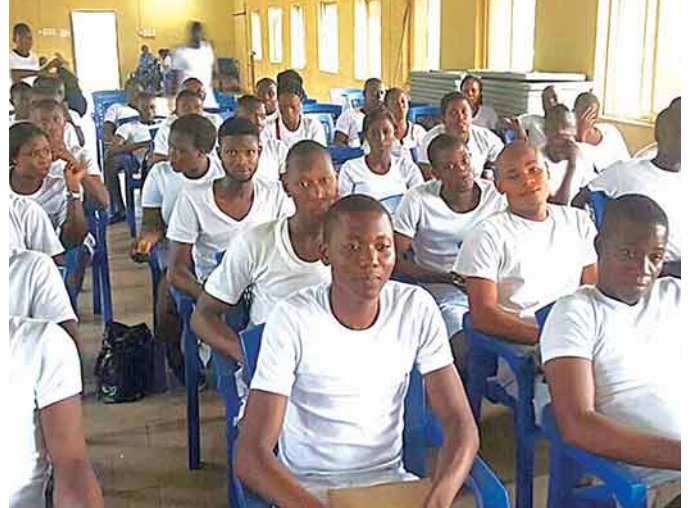News
Police To Train Recruits On Sex Education, Others

Recruits of the Nigeria Police Force will now receive training on topics such as sex education, anti-corruption laws, harassment and gender-based crimes, the Discrimination Against Persons with Disabilities (Prohibition) Act, and election security.

Other subjects include the core principles of public relations and public speaking, cartography, map reading, human relations, report writing, the Cybercrime Act 2015, combat skills, artificial intelligence, attitudinal and behavioural changes, and public conduct.
These topics are part of the new training curriculum approved for all recruits by the Inspector-General of Police, Kayode Egbetokun.
In a statement on Wednesday, the Force Spokesperson, Muyiwa Adejobi, said the new curriculum aims to enhance the professionalism and operational effectiveness of the service.
He said, “The IGP, Kayode Adeolu Egbetokun, has approved the implementation of a revised training curriculum for all police recruits, a significant step towards enhancing the professionalism and operational effectiveness of the Nigeria Police Force.
This new training curriculum, when fully implemented, will prepare the recruits for the challenges they will face while policing a complex society like Nigeria, and how to best perform their duties in line with international best practices.
“The revised curriculum introduces a comprehensive range of training topics, which includes: The Police Act 2020, to familiarise trainees with the latest legal framework guiding police operations; The Nigeria Police Force Social Media Policy, to help trainees understand appropriate social media conduct and the role of social media in policing and communication; computer studies, gender mainstreaming and education, sex education, anti-corruption laws, training on harassment and gender-based crimes, the Discrimination Against Persons with Disabilities (Prohibition) Act, election security (Electoral Act 2022), the core principles of public relations and public speaking, cartography, map reading, human relations, report writing, the Cybercrime Act 2015, combat skills, artificial intelligence, attitudinal and behavioural changes, and public conduct.”
Adejobi added that the implementation of this revised curriculum aligns with the IGP’s commitment to intellectual and capacity building within the Nigeria Police Force.
“By addressing critical areas of training, the IGP aims to improve the recruits’ performance, professionalism, and community-oriented approach, preparing them to effectively discharge their duties within the bounds of the law.

“The Nigeria Police Force is committed to continuous improvement and sensitization of its officers, ensuring that they are not only well-trained but also equipped with the necessary knowledge and skills to meet the high demands of policing, in collaboration with relevant stakeholders, to achieve the crime-free society we deserve,” he added.
PUNCH







